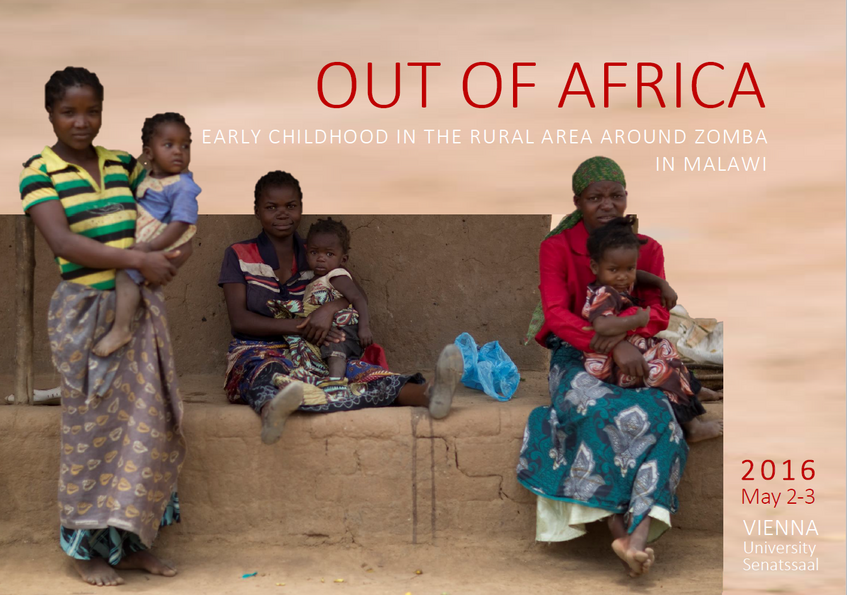As part of the international workshop „Out of Africa: Early childhood in the rural area of Zomba in Malawi“, first research results of data gathered during two field trips was presented to chosen experts from the research field as well as professional colleagues and students of the University of Vienna.
In 2011 and 2013, Lieselotte Ahnert and Limbika Maliwichi-Senganimalunje (from the Chancellor College of the University of Zomba) conducted 2 field trips with 14 students from Vienna and 9 students from Zomba. The research objective was to observe how Malawian families raise their children in their traditional way of care, which also existed in the past history of Europe. In detail, the group investigated how children process multiple caretaking patterns and how this affects the (evolutionary) mother-child-attachment as well children’s social development. The main interest in this research comes from the point of view that the development of young children in European childhood research is tied to core families, as multiple caretaking through the addition of out-of-home-caregivers seems to get rejected by European families.
Limbika Maliwichi-Senganimalunje and other guests from the USA and Israel attended the workshop, as they investigate how children are raised from a cross-cultural perspective and also focus on multiple caretaking systems. These top scientists included Carol Worthmann (Emory University/USA), Avi Sagi-Schwartz (Haifa University/Isreal) and German Posada (Purdue University/USA), who presented their own results and initiated discussions, which integrated perspectives of anthropology, developmental psychology, childhood and attachment science. This lead to the development of interesting discussions, which were continued on an even more detailed level in the evening during the “Meet the Scientists” sessions.

